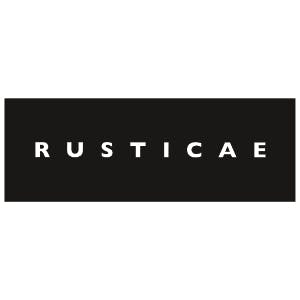


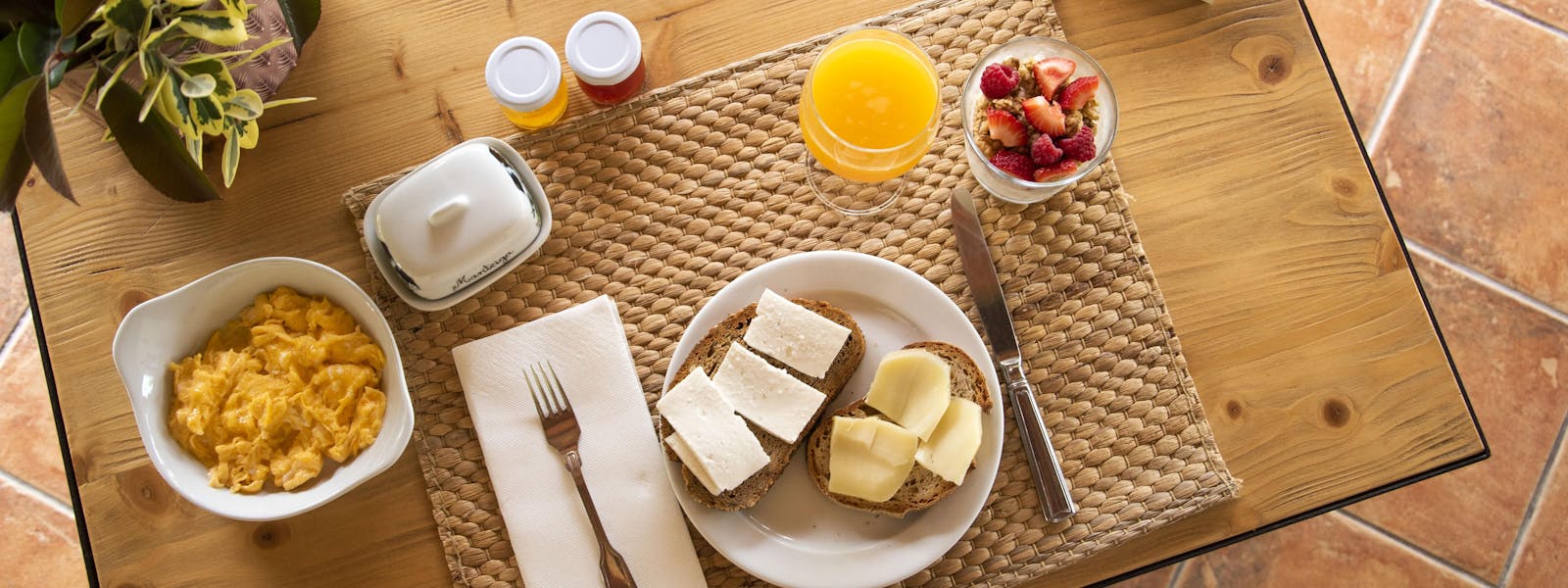
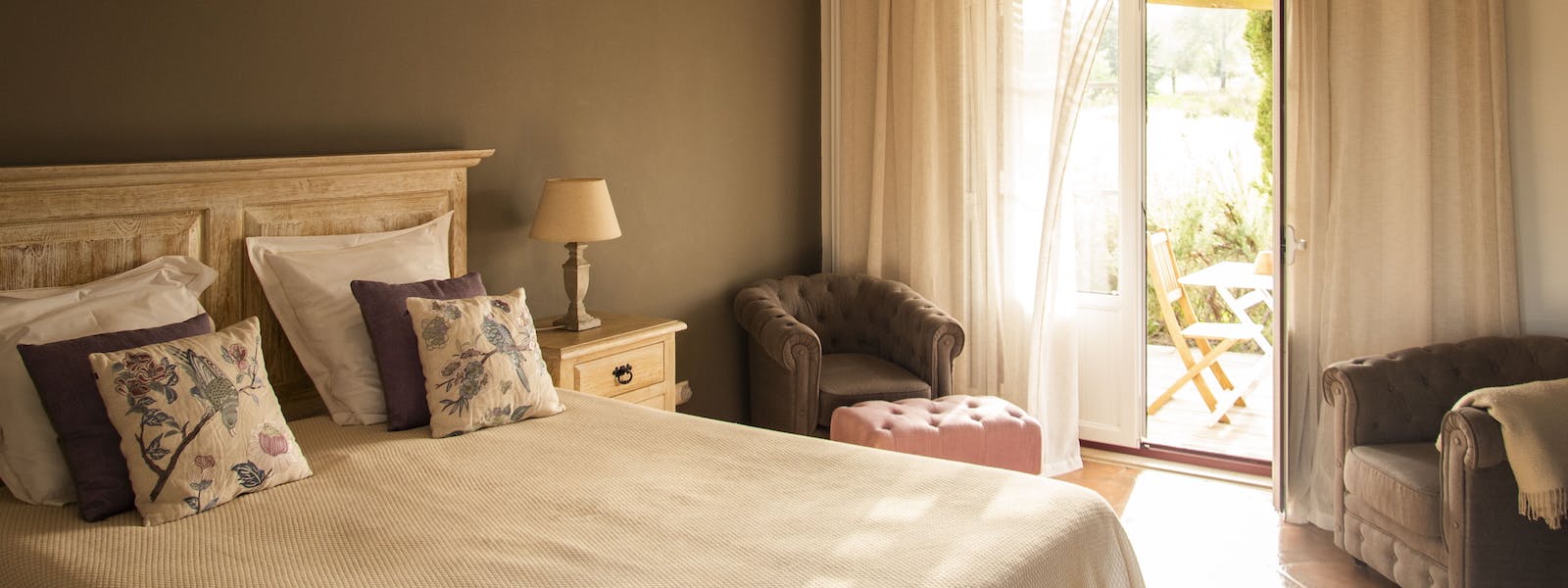


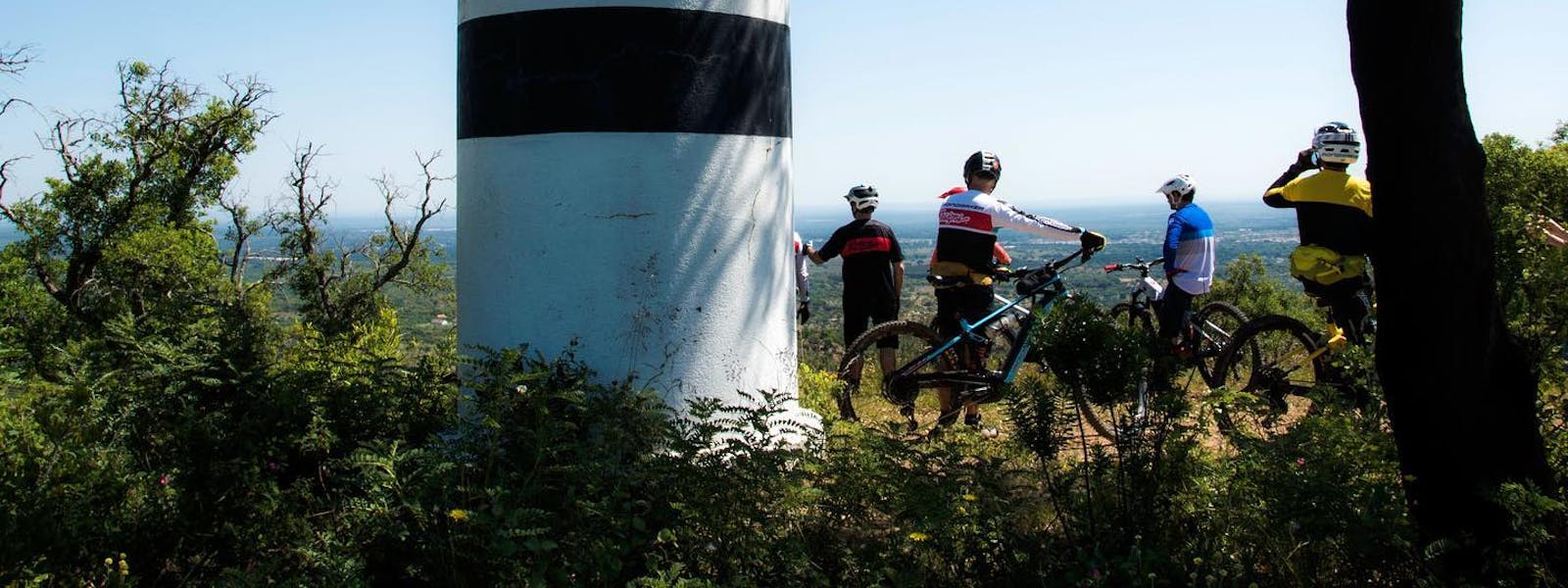
Propriedade familiar e turismo rural em Grândola, imersa num montado de sobro, com a praia a minutos de distância. Autêntica há 5 gerações.
Ofertas & Escapadas
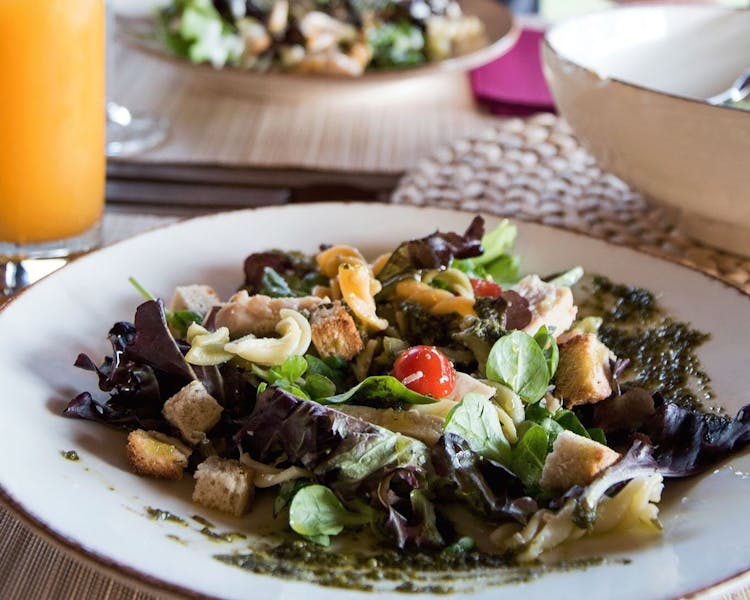
Escapada | Degustação
O Alentejo tem uma longa tradição gastronómica, e nós não a deixamos passar em branco. Influenciadas também pelos nossos gostos e viagens e por tudo o que nos rodeia, as tapas da Herdade são um ex-libris apreciado por todos os que nos visitam.
Neste programa, usufrua de uma noite para duas pessoas em quarto duplo Superior (sujeito a disponibilidade) e de uma degustação com 5 tapas da nossa carta à sua escolha.
Disponível de fevereiro a junho e de outubro a dezembro, a partir de €200,00
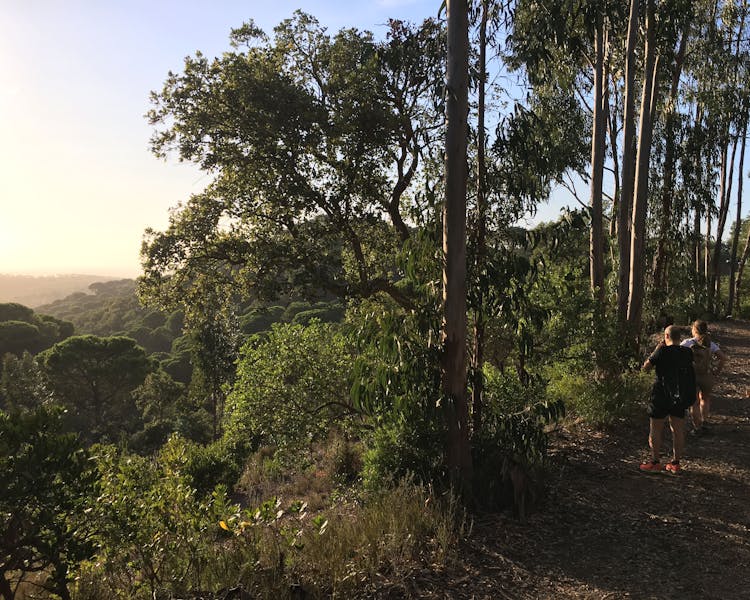
Escapada | Serra
Este programa inclui 1 noite em quarto duplo Superior (sujeito a disponibilidade), uma visita guiada aos trilhos da Herdade e um jantar para duas pessoas.
Disponível entre fevereiro e junho, e de outubro a dezembro a partir de 250,00€.

Escapada | Outdoor & Relaxamento
A Herdade tem 600 hectares de floresta, em algumas zonas, quase intocada, cheia de árvores centenárias e vistas incríveis.
Nesta oferta, desfrute de uma noite em quarto Junior Suite (mediante disponibilidade), um passeio guiado de bicicleta elétrica de montanha para uma pessoa e de uma massagem relaxamento de 50 minutos para uma pessoa.
Disponível de Fevereiro a Junho e de Outubro a Dezembro, a partir de 300,00€
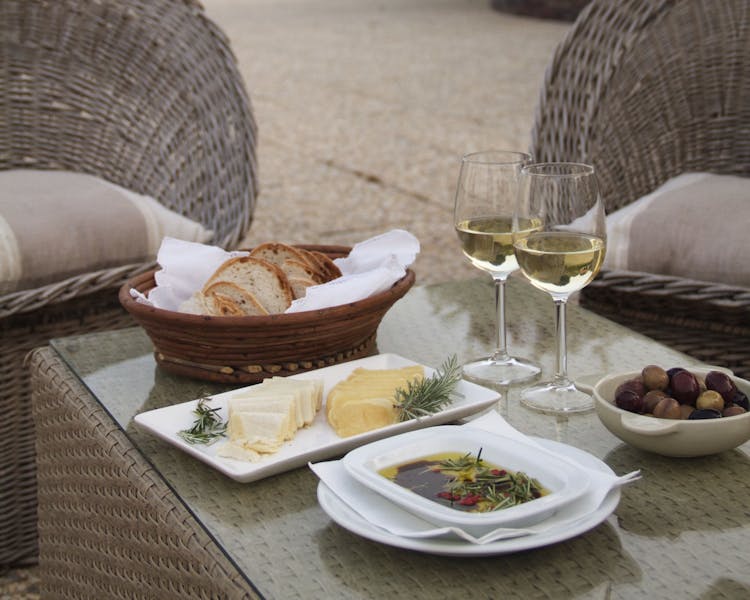
Escapada | Conforto
Este programa inclui uma noite para duas pessoas com pequeno-almoço num quarto Estúdio (sujeito a disponibilidade), um aperitivo de tapas para duas pessoas junto à lareira na nossa sala ou no nosso fabuloso jardim, e uma massagem para uma pessoa.
Disponível entre fevereiro e junho, e de outubro a dezembro por 280,00 euros.

Escapada | Tradição
O Alentejo tem muitas tradições, e uma gastronomia rica e apreciada por todos os que visitam a região.
Neste programa, juntamos a paz e o conforto de uma estadia na Herdade, em quarto duplo Superior (mediante disponibilidade) com um jantar para dois num restaurante tradicional ou taberna nossa parceira (menú excluindo vinho ou outras bebidas alcoólicas).
Disponível de Fevereiro a Junho e de Outubro a Dezembro, a partir de 200,00 €

Escapada | Sentir a areia
A natureza e a floresta rodeiam o nosso alojamento e herdade, e por vezes esquecemo-nos que estamos a apenas 15 minutos de algumas das melhores praias do país, de Melides à Comporta.
Neste programa pode usufruir de uma estadia num dos nossos Quartos Superiores duplos para duas pessoas (sujeito a disponibilidade), e de um piquenique preparado à medida para um dia de praia na tranquilidade típica da época baixa.
Disponível de fevereiro a junho e de outubro a dezembro, a partir de €180.00

Escapada | Visita a adega
O vinho tem uma longa tradição no Alentejo, mas nesta região mais próxima do oceano, têm-se consolidado nos últimos anos vinhos muito especiais e com caraterísticas únicas.
Neste programa, poderá usufruir de uma estadia numa das nossas Junior Suites para duas pessoas, e de uma visita a uma das nossas adegas vizinhas (Herdade da Comporta ou Herdade do Canal Caveira) para uma prova de vinhos.
Disponível de fevereiro a junho e de outubro a dezembro, a partir de €250.00.
Atrações

Cais Palatifico da Carrasqueira
The Palafítico da Carrasqueira Pier is one of the most visited places in the municipality. This masterpiece of popular architecture, erected in the 1950s and 1960s, is unique in Europe and is built on irregular, apparently fragile wooden piles that serve as a wharf for the fishing boats that dock there. A tourist attraction, the wharf still fulfils the mission for which it was built: to allow fishermen access to the boats, even during low tide.


Paia de Melides
Sand beach with a good public parking, dunes and a beautiful natural lagoon

Praia da Aberta Nova
Large and cliffy beach, an example of environmental preservation, awared consecutively with the Golden Beach Recognition.

Praia do Pego
Praia do Pego is one of the most beautiful beaches in the area, and one of the most equipped in terms of services and accessibility. It has two restaurants and a beach bar, sunbed umbrella rental, a surf school and covered parking (paid).

Alcácer do Sal
Alcácer do Sal is a small city on the shore of the Sado river. With traditional architecture, it is particularly nice to take a walk on the main street, facing the river, during sunset, and have an early dinner at one of the terrace restaurants. A special kind of shrimp, very little in size, is the go to "tapa" in Alcácer.

Adega da Comporta
Beautiful winery, inserted between the estuary of the Sado River, the village of Comporta, the rice fields and the sea.
You can book wine tastings in advance and purchase wine directly in the winery store.

Praia do Carvalhal
Amazing dune beach with views to the Serra of Arrabida, equipped with two restaurants, surf school and covered parking lot (paid).

Roman Ruins of Troia
Discover the Acala island, as it was known in the days of Ancient Rome. A few minutes from Troia’s central area, travel back in time to the ruins of the largest center of fish-salting industry known from the Roman Empire, occupied until the 6th century. Wander among ruins of factories, tombs and tubs for hot and cold baths. New vestiges are being discovered every year, which you can see in the archaeological exhibitions, guided visits and thematic events. When you take a break from the beach, golfing or the marina, get a sense of Troia’s past and the history that shaped this area over time.

Dolphin watching - Vertigem Azul
Vertigem Azul is a company that organizes boat tours on the River Sado, mainly focused on dolphin watching, with a great environmental conscience. It's an amazing experience that we strongly recommend. The tours start from the Troia marina, and tickets can be purchased there.

Centro de Ciência Viva das Minas do Lousal
The Lousal mine, located in Grândola, had its extractive activity, between 1900 and 1988, mainly dedicated to the exploitation of pyrite for the use of sulfur, a raw material for the production of sulfuric acid used in the manufacture of fertilizers. In the late 1980s, the production of sulfuric acid from pyrite ceased to be economically viable, leading to the closure of the mine.
Following the closure of the mine, there was a accentuated decrease in the population. In order to reverse this situation, in 1994, the RELOUSAL project was born, resulting from the union of efforts between SAPEC, SA (the company that owns the mine) and the Câmara Municipal de Grândola, creating the Fundação Frédéric Velge. This entity initiated a set of initiatives aimed at exploring the museological, tourist and geoenvironmental potential of Lousal. Over more than twenty years, several buildings have been recovered and transformed in a Hotel, a Restaurant, an Industrial Archaeology Museum and a Ciência Viva Center.

